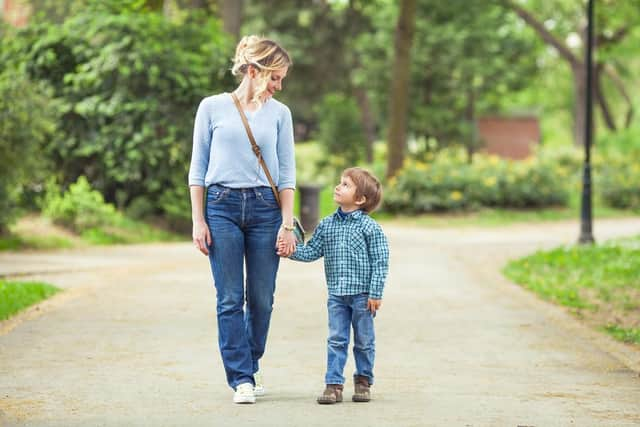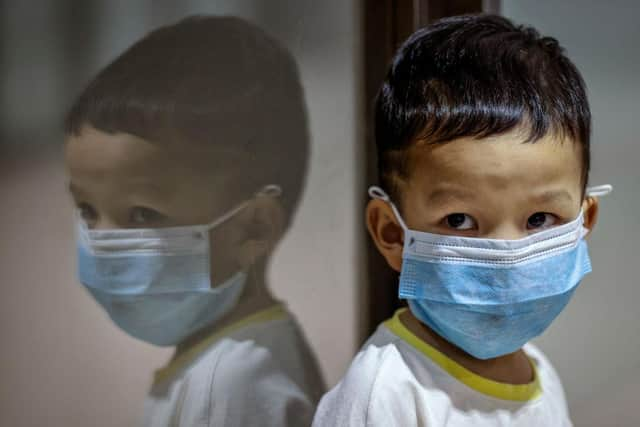What is a support bubble? Rules for childcare and meeting others as England enters second national lockdown
and live on Freeview channel 276
England is embarking on its second national lockdown, with strict coronavirus restrictions in place across the country.
Under the new rules, you must not meet people socially.
However, exceptions do apply. Here’s everything you need to know about support bubbles


What are support bubbles?
Advertisement
Hide AdAdvertisement
Hide AdYou can exercise or meet in a public, outdoors space with people you live with, with one other person, or your support bubble.
A support bubble is a close support network between a household with only one adult in the home (known as a single-adult household), and one other household of any size.


Children under school age, as well as those dependent on round-the-clock care, such as those with severe disabilities, who are with their parents will not count towards the limit on two people meeting outside.
The government recommends that you form a support bubble with a household that lives locally wherever possible.
Advertisement
Hide AdAdvertisement
Hide AdOnce you’re in a support bubble, you can think of yourself as being in a single household with people from the other household. It means you can have close contact with that household as if they were members of your own household.
Once you make a support bubble, you should not change who is in your bubble.
You should continue to follow social distancing guidance with people outside of your household or support bubble, and minimise time spent outside your home.
When around other people, you’re advised to stay two metres apart from anyone not in your household or your support bubble.
Advertisement
Hide AdAdvertisement
Hide AdWhere this is not possible, stay one metre apart with extra precautions (e.g. wearing a face covering).
What about childcare support bubbles?
Parents are able to form a childcare bubble with one other household of any size for the purposes of informal childcare, where the child is 13 or under
You can also still form a support bubble with another household if you live in a single-adult household - meaning that you live by yourself or with children who were under 18 on 12 June 2020.
If you’re a single-adult household, you can form a support bubble with another household other than the one that includes your child’s other parent.
Advertisement
Hide AdAdvertisement
Hide AdIf you share custody of your child, and you and your child’s other parent are in separate bubbles, members of both bubbles should stay at home if someone develops symptoms.
What if somebody in my bubble contracts Covid-19?
If anyone in your support bubble develops symptoms or tests positive for coronavirus, follow the stay at home guidance: this will help to stop Covid-19 spreading across multiple households.
If NHS Test and Trace contacts you or someone in your support bubble, you should follow their guidance.
Under what other circumstances can I leave my home?
The stay at home order of the second lockdown means you must not leave or be outside of your home except for specific purposes. These include:
Advertisement
Hide AdAdvertisement
Hide Ad- for childcare or education, where this is not provided online
- for work purposes, where your place of work remains open and where you cannot work from home (including if your job involves working in other people’s homes)
- to exercise outdoors or visit an outdoor public place - with the people you live with, with your support bubble or, when on your own, with 1 person from another household
- for any medical concerns, reasons, appointments and emergencies, or to avoid or escape risk of injury or harm - such as domestic abuse
Advertisement
Hide AdAdvertisement
Hide Ad- shopping for basic necessities, for example food and medicine, which should be as infrequent as possible
- to visit members of your support bubble or provide care for vulnerable people, or as a volunteer
